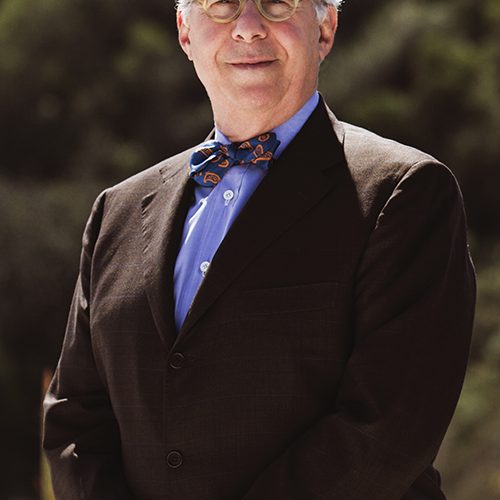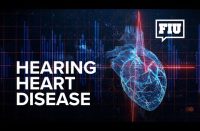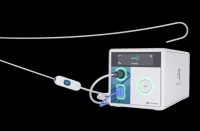SAN DIEGO, Feb. 27, 2017 /PRNewswire-USNewswire/ — Renova™ Therapeutics, a biotechnology company developing gene therapy treatments for congestive heart failure and type 2 diabetes, announced that the company’s CEO and Co-founder, Jack W. Reich, Ph.D., will be speaking at the Novel Cardiovascular Therapeutics Summit in San Francisco on February 28, 2017.
The annual summit is dedicated to translating the latest developments in the genomic and molecular understanding of the causes of cardiovascular disease, heart failure and cardiomyopathy into new pharmacological therapies in the clinic. Dr. Reich will be speaking on breakthroughs in heart failure treatment, elucidating the transformational potential of gene therapy to treat cardiovascular disease and beyond.
Jack W. Reich, Ph.D., CEO and Co-founder of Renova Therapeutics, will be speaking on breakthroughs in heart failure treatment at the Novel Cardiovascular Therapeutics Summit in San Francisco on February 28, 2017.
Jack W. Reich, Ph.D., CEO and Co-founder of Renova Therapeutics, will be speaking on breakthroughs in heart failure treatment at the Novel Cardiovascular Therapeutics Summit in San Francisco on February 28, 2017.
The Novel Cardiovascular Therapeutics Summit is dedicated to translating the latest developments in the genomic and molecular understanding of the causes of cardiovascular disease, heart failure and cardiomyopathy into new pharmacological therapies in the clinic.
The Novel Cardiovascular Therapeutics Summit is dedicated to translating the latest developments in the genomic and molecular understanding of the causes of cardiovascular disease, heart failure and cardiomyopathy into new pharmacological therapies in the clinic.
“I believe with gene therapy we’re on the cusp of changing the way some major chronic diseases, including heart failure, are treated,” says Dr. Reich. “We’re talking about the potential to reverse the disease process, not just treat symptoms. Improving cell and organ function, rather than decreasing demands on the body. It’s an exciting time in medical innovation.”
Dr. Reich’s presentation will focus on the company’s lead product candidate, RT-100 AC6 gene transfer, a treatment that delivers the therapeutic gene adenylyl cyclase type 6 (AC6) directly to the heart during a routine outpatient procedure. He will also discuss the company’s stresscopin peptide infusion treatment, RT-400, for periods in which heart failure patients are hospitalized for acute decompensated heart failure.
The summit will also feature speakers from Amgen, Sanofi, Merck, the Mayo Clinic, Duke University and Stanford University, among others. Dr. Reich’s presentation will take place at 1:45 p.m. on February 28, the first day of the two-day summit.
About heart failure
Heart failure is a chronic disease characterized by the inability of the heart to pump sufficient blood to meet the body’s demands. It is a progressive and fatal chronic condition, and symptoms worsen over time. Heart failure afflicts more than 28 million people globally and is the only cardiovascular disease that is increasing in prevalence.1 It is the most common cause for emergency hospital admissions in patients 65 and older.
About acute decompensated heart failure
Acute decompensated heart failure (ADHF) is a severe episode of acute respiratory distress in which a heart failure patient experiences a sudden or gradual onset of the signs of heart failure that requires either initiation or escalation of treatment to relieve symptoms and prevent death. ADHF is caused by severe fluid congestion of the body’s organs, especially the lungs, due to the failing heart providing inadequate circulation.
Symptoms of ADHF can include difficulty breathing, waking up from sleep gasping for air, fatigue, swelling of the legs or feet, as well as chest pain and pressure. Most episodes require immediate emergency room visits or hospitalizations for treatment. Current treatment options for ADHF primarily involve reducing the organ fluid levels with diuretics, delivered intravenously, and stabilizing heart function with vasodilators such as nitroglycerin. Additional treatments can include providing breathing support using a face mask or breathing tube, as well as an ultrafiltration process to remove fluids in people with ADHF associated with kidney failure.
About Renova Therapeutics
Renova Therapeutics is developing definitive, one-time gene therapies and peptide infusion treatments to restore the health of people suffering from chronic diseases. The first indications the company is pursuing are gene therapy treatments for congestive heart failure (CHF) and type 2 diabetes, two of the most common and devastating chronic diseases in the world. The company’s lead product, RT-100, is a treatment that delivers a therapeutic gene directly to the heart during a routine outpatient procedure and has the potential to increase heart function in millions of patients with CHF. The company’s product pipeline also includes a groundbreaking gene therapy in preclinical stage for sufferers of type 2 diabetes, as well as a peptide infusion therapy for the treatment of acute decompensated heart failure. Renova Therapeutics was founded in 2009 and is led by an experienced management team in biopharmaceuticals and gene therapy. For additional information about the company, please visit www.renovatherapeutics.com.
About the Novel Cardiovascular Therapeutics Summit
The Novel Cardiovascular Therapeutics Summit 2017 brings together the top experts in cardiovascular clinical and pre-clinical research to share exclusive insight and discuss key issues such as:
The rising awareness of diabetes drugs transitioning into the cardiovascular space
The most current and innovative therapeutic approaches to the treatment of heart failure
The regulatory hurdles in cardiovascular research and the regulatory perspective on emerging therapies
New clinical trial methodology for cardiovascular and cardiometabolic drug development
Novel therapeutic modalities and advances (RNAi, gene therapy, cell therapy, etc.)
The agenda combines cutting edge science with practical discussion on how to cut the cost and complexity of cardiovascular research in order to expedite the development and approval of vital new treatments. For more information, visit http://ncvt-summit.com.







